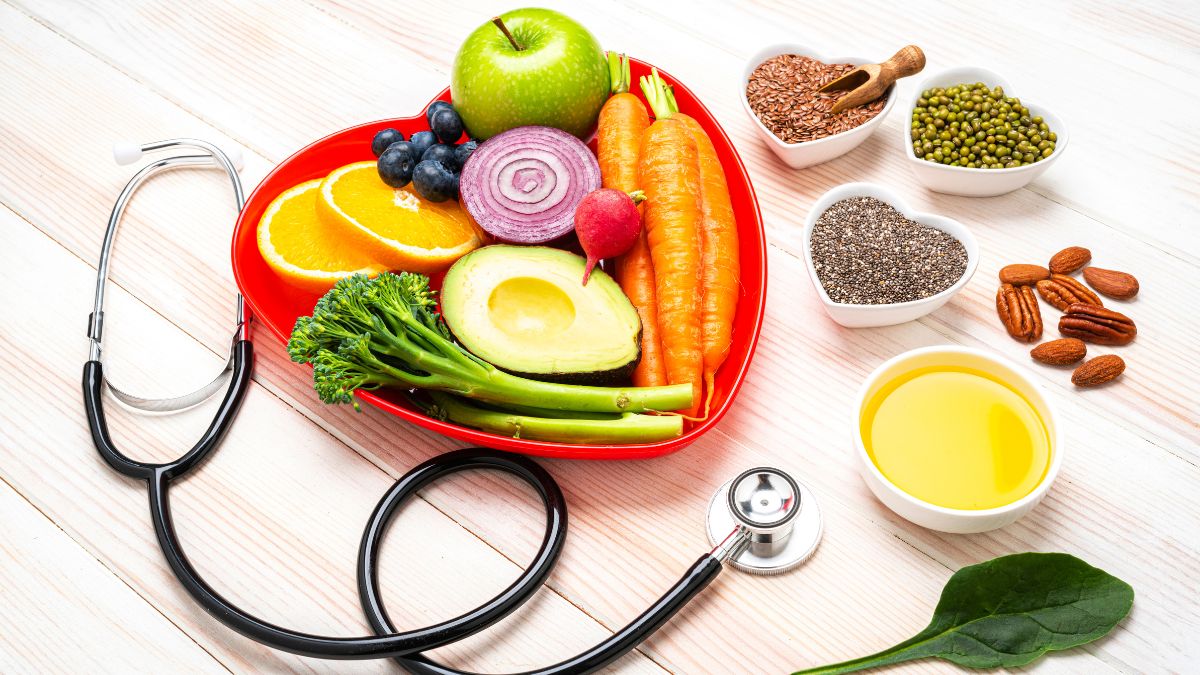- By Bornika Das
- Thu, 02 Oct 2025 07:34 PM (IST)
- Source:JND
This holiday season, maintaining the health of the heart during celebrations is paramount, considering that attendances are often marked by rich foods, physical exertions, and emotional tension that affect cardiovascular well-being. Cardiologists stress the need for balanced moderation through dietary regulation, appropriate hydration, and stress control. It is suggested to modulate oneself during celebrations, abstain from overuse of alcohol, heavy meals and remain active with gentle exercises or walks for maintaining cardiac function and avoiding undue stress.
People, especially those with heart ailments or risk factors such as high blood pressure, diabetes or overweight conditions, need to keep their health under check during this period. Drinking adequate water to avert dehydration, which puts pressure on the heart, is crucial. Frequent rest intervals, not smoking, and taking medical consultation if any of these symptoms such as chest discomfort, dizziness, or excessive weakness, arise need to be given top priority. In conversation with The Daily Jagran, Dr Vivek Mahajan, Consultant Interventional Cardiology, Fortis Hospital, Kalyan, shares tips to keep the heart healthy during the festive season by managing sugar, salt and stress.
Traditional sweets are packed with refined sugar, which causes sudden rises in blood glucose (the sugar level in the bloodstream). Dr Vivek Mahajan states, “Repeated sugar surges increase the risk of diabetes and damage blood vessels that supply the heart. Instead of giving up sweets entirely, reduce portion sizes and share desserts.” Pair sweets with a handful of nuts or fruit to reduce rapid sugar absorption. Drink enough water to balance the extra sugar load.
ALSO READ: Why Heart Failure Cases Are Rising In Young Athletes? Doctor Explains
Salt is another hidden danger. Popular festive snacks and packaged Namkeens are often loaded with sodium, the mineral that controls fluid balance. Excess sodium can raise blood pressure, cause fluid retention and increase the heart’s workload. Dr Vivek Mahajan mentions, “People with existing heart disease may notice swollen feet or breathlessness when sodium intake is high.” Replace packaged snacks with home-cooked treats seasoned with herbs and spices and lemon juice instead of extra salt.

Healthy Heart During Festive Season (Image Credits: Canva)
Festive stress is real. Rushing to shop, cooking for guests, managing travel or hosting large gatherings can raise stress hormones like cortisol and adrenaline. These hormones increase heart rate and blood pressure and may trigger palpitations. Schedule short breaks during the day for deep breathing, meditation or yoga. Even ten minutes of slow, mindful breathing can bring down stress levels. Dr Vivek Mahajan states, “Do not skip your regular exercise; a brisk morning walk helps offset the extra calories and calms the mind. Late-night celebrations can disturb sleep, and chronic sleep loss itself raises blood pressure and blood sugar.” Try to maintain at least six to seven hours of restful sleep and avoid heavy meals or alcohol just before bedtime.
ALSO READ: Gut Health And Heart Health: Doctor Explains The Connection Between Gut Bacteria And Cholesterol
Those who have diabetes or pre-existing heart conditions should keep their medications close and stick to their medication schedule, even on the busiest days. Sudden chest pain, breathlessness, profuse sweating, and extreme fatigue are all serious warning signs that require immediate medical attention. Dr Vivek Mahajan advises, “During and after the festival season, regular medical check-ups, including the monitoring of blood pressure and blood sugar levels, are crucial.” One can enjoy every festival to the fullest while keeping their heart made resilient and robust for the many seasons to come by balancing indulgence with mindful habits, adequate sleep, regular exercise, and stress management, and practising mindful eating by taking smaller portions of sweets and controlling the amount of salt consumed.

